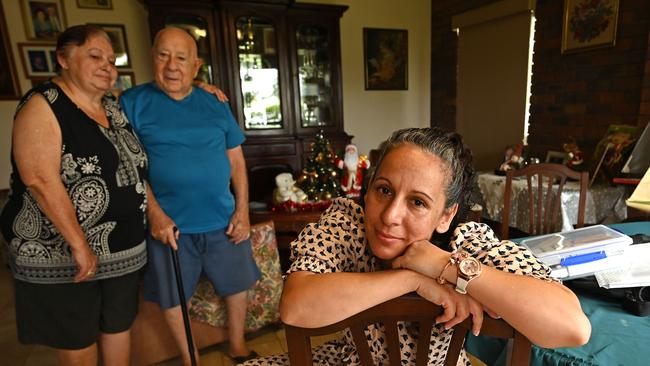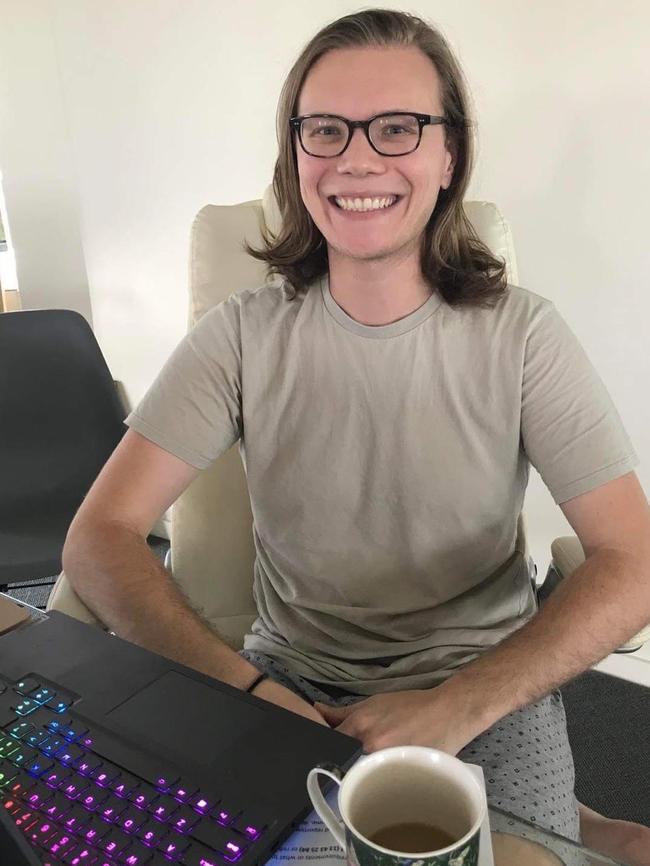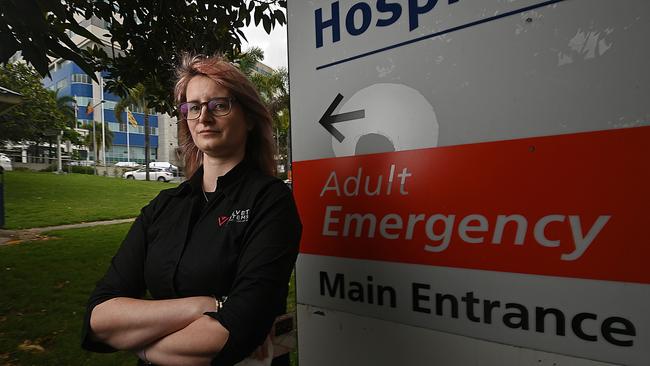Australians on their own in this DIY Covid-19 pandemic
Australians are seemingly on their known in this DIY Covid pandemic, as we turn to each other, not governments, for vital advice.

In this confused and confounding new year, Australians have had to learn a sobering lesson as Covid case numbers soar and government services buckle or disappear entirely … we’re on our own.
The Covid pandemic has become the DIY pandemic, as people have turned to each other for advice on what to do when Omicron strikes, how to lay their hands on an elusive rapid antigen test kit, and which PCR testing station has the shortest queue.
On Facebook, private groups such as the one started by Brisbane woman Danica Clayton on Christmas Eve have undertaken the casual contact tracing that health authorities abandoned last year. The group’s membership is already approaching 200,000 and is growing faster than the grim daily count of new infections.
Similar websites allow those in isolation or sick at home to vent their frustration, providing a comforting sense of community at a deeply unsettling time.
This was particularly so in Queensland, which caught on to Covid with a vengeance after the state border reopened last month. The numbers tell the story, exploding from 3587 new cases on January 1 to 10,953 as of Friday, when 14 people were in intensive care in hospital, three of them on ventilators.
NSW easily headed the count of new infections with 38,625 cases, followed by 21,728 in Victoria, where one in 50 people are believed to have the virus.
“We basically stepped in to provide the information people were crying out for and couldn’t get from Queensland Health,” said Ms Clayton, 29, who works as an administration assistant with a Brisbane IT firm.
“People started uploading their contact history from the QR app and it went from there,” she said. “We’re now putting together maps in our group. There are tracking spread sheets … all the stuff that used to be on the government website we’re pretty much doing ourselves.”
Her Facebook page, South East Queensland Covid Exposure Sites, now covers the entire state and is maintained by 14 near-full-time volunteer staff, hard-pressed to keep up with the blizzard of posts. Members of the group hashtag their suburb as a signpost for emerging hot spots.
Novocastrian Jack Vallis, 28, had travelled to Queensland for Christmas when he started to feel ill. He was turned away from four PCR clinics before he was tested. Waiting in the seemingly endless lines, he told himself there had to be a better way. So he put his skills as a data engineer to work.

Danica Clayton the head of a private Facebook contact tracing group in Brisbane, in front of the Royal Brisbane and Womens Hospital. Picture” Lyndon Mechielsen.
“It is community-driven, so it’s probably not going to be 100 per cent accurate all the time,” Mr Vallis said. “But having that there is, I think, incredibly useful and much better than the current solution – which is nothing.”
Findarat.com.au, set up by Melbourne software engineer Matt Hayward, lets people share success in tracking down the hard-to-get rapid antigen tests.
Another Brisbane-based Facebook group, How’s the testing line?, with 19,500 members, offers tips on where and when to get a PCR test.
Ms Clayton said moderators tried to keep the tone positive, but it was increasingly difficult as frustration turned to fury in the community about the lack of official information.
“Honestly, it’s a bit disappointing,” she told The Weekend Australian. “Initially I thought, ‘Oh, it’s cool, I’ll just help out’, and then they basically stopped contact tracing. It’s strange, because Queensland Health is still getting the information from the QR app, but they’re not putting it up.
“Over the past week I’ve got a bit more annoyed because we want to work with the government. We’ve reached out in a couple of different ways to them, so hopefully we will hear back at some point. We’d love to be able to offer them our resources because we have so

many fantastic people contributing.”
Ms Clayton’s page is dotted with pleas for help. One mother detailed how she and her four children, aged five to nine, were positive on RAT testing and then had to wait days for the PCR results to come through, confirming the result. “Thanks,” she wrote.
A post to How’s the testing line? describes the plight of a 101- year-old woman, also RAT positive, who was taken by her granddaughter to a Brisbane PCR station – but they were turned away.
If anyone is doing it tough it is Nicholas Comino, 82, who is battling both leukaemia and the lung disease asbestosis. He and his wife Eva, 72, joined the queue for another drive-through station at 2.30am and waited more than six hours to be PCR tested. “It’s leaving a lot of people very, very vulnerable,” Ms Comino said. “We should not have had to do that.”
Infectious disease expert Paul Griffin, of Mater Health Services in Brisbane, warned confidence in the public health measures was slipping. “I think people are really losing faith in the systems in place,” he said. “It is clear we were not prepared for this situation.”
Asked recently if he was concerned that individuals were taking contact tracing into their own hands, Queensland chief health officer John Gerrard said: “If people want to avoid getting infected, that is fine, it’s not a concern.
“What we are saying is that if we attempted to isolate every casual contact with Covid-19 in Queensland, then everyone will be in quarantine and that is not necessary.”
On Friday, Annastacia Palaszczuk said a hotline would be set up to collect home test data, with a web portal to follow.



To join the conversation, please log in. Don't have an account? Register
Join the conversation, you are commenting as Logout